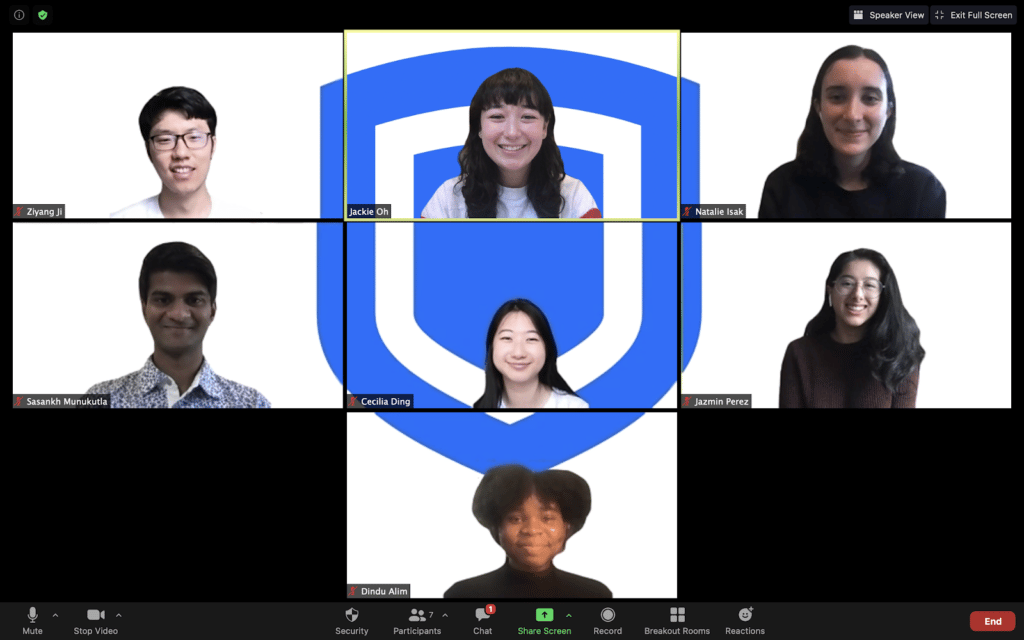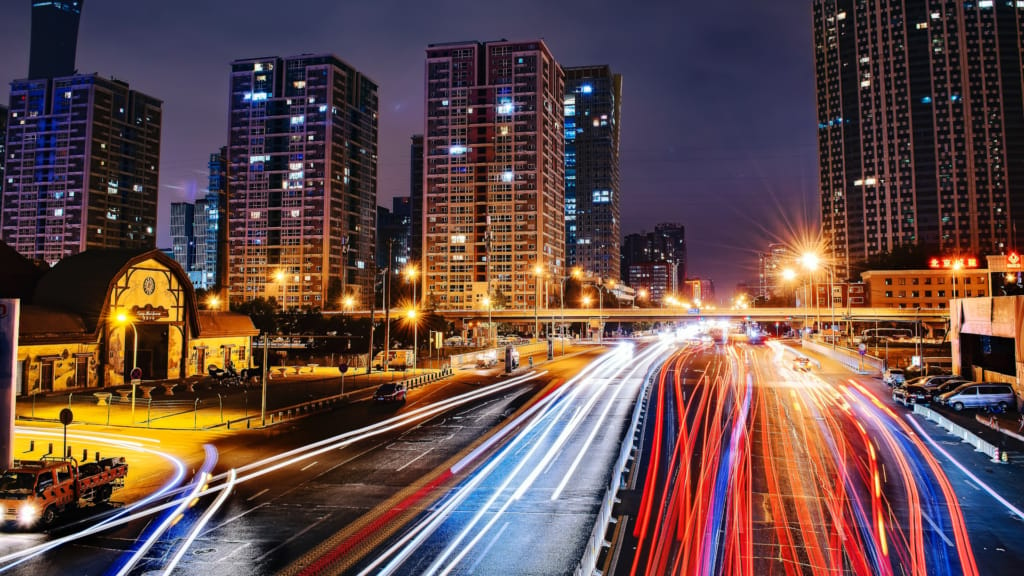
I still remember the night when my dad led me and my siblings across the border. As we walked through a bunch of trees, I was told to cover my face with my arm. I only felt the branches hitting me, but the next morning I noticed that my arms were covered in little thorns.
If I were to say, “I came to the U.S. at the age of ten,” I would be lying. In reality, I was brought here.
I grew up in a small city in Mexico called Putla Villa de Guerrero Oaxaca. In Putla, I worked for a woman called Doña Estela, sweeping, mopping, doing the dishes, and milking her family’s cows. I got paid 10 pesos a day (~$1 USD), enough for a torta and a cup of water at school. Instead of shoes, which I felt were uncomfortable and too expensive anyway, I wore huaraches soled with rubber tires.
Today I work as a software engineer at Uber, contributing to the growth of Uber Eats, a move that rotated my life 180 degrees. When I first interned at Uber, my mentor told me, “Now you have different types of problems; the good type of problems.” Life at Uber has given me the opportunity to experience so many new things. For example, I flew in an airplane for the first time; I traveled outside of California for the first time; and, with Uber Eats, now I can order food and have it delivered directly to me, a luxury some might take for granted.
This change from milking cows to writing code did not happen overnight. It was made possible by the individuals who took the time to reach out and guide me along the way. I am very thankful and appreciative of all the support and effort that made these opportunities possible, including the Deferred Action for Childhood Arrivals program (DACA).
Living with fear
When I was growing up, my mom and dad would go to California to earn money, mostly weeding lettuce fields, leaving me with my grandma. Eventually, my mom remained in the U.S., and my dad came home with the intention of bringing me back to California with him. He told me I had two options: I could stay in Mexico with my grandma, but then it would be a long time before I saw my mom, or come with him and be reunited with her.
What does a 10-year-old kid know about immigration laws? All I wanted was to see my mom, so I came to California with my dad.

When I got to the U.S., my mom enrolled me in the fifth grade. I remember my first day of class. My mom took me to the classroom’s front door and knocked. A tall white guy opened the door and said something in English that, of course, I didn’t understand. My mom just handed him a piece of paper that someone in the school’s front office had given her and he walked me to a desk.
The man who answered the door turned out to be a substitute. My actual teacher spoke Spanish and gave me a lot of support and encouragement. Within a few months, I understood English well enough, but speaking it took longer to learn. To bolster my understanding of the language, I enrolled in Saturday classes. Over time, I did well in English and excelled in math. I began studying algebra, which most students did not learn until high school.
In school, my teachers urged me to study, to get good grades. But every day while I was at school, I worried about getting arrested and deported. Or what if my parents were deported while I was at school?
[perfectpullquote align=”right” bordertop=”false” cite=”” link=”” color=”” class=”” size=””]One day at school, I heard rumors that Immigration Control and Enforcement (ICE) officers were coming to take students like me.[/perfectpullquote]
One day at school, I heard rumors that Immigration Control and Enforcement (ICE) officers were coming to take students like me. I talked to my mom about it, and she didn’t know what to do. When there’s fear, it’s really hard to ask questions. Who do you trust? I opened up to my teacher and although I found it difficult to explain my situation, she understood. She said it would be like this for as long as I did not have citizenship.
Living in constant fear, I considered scenarios of ICE officers knocking at our apartment door, what I might do and the potential outcomes.
One Saturday morning in high school while I was weeding lettuce, I heard on the radio that ICE was in the city next to mine, taking people and deporting them. As we left work that day, my father worried about being pulled over and asked me to drive him and some of the other workers home. There are times when DACA holders are expected to go above and beyond, helping their family members who may not speak English as well. In this moment, I was responsible for ensuring the safety of all of us. I was scared the whole time, because if I messed up, seven people might be deported.
Building knowledge, accepting opportunity
How was I supposed to focus on school when I was constantly worrying about my family being separated? During my first year in the U.S., someone told me that there’s no point in studying hard if you can lose it all overnight, and there’s no point in going to college if you can’t even legally hold a job. But there’s one thing they can’t take away from you and that’s knowledge. Over time, I realized that the more knowledge you accumulate, the more valuable you become.
President Franklin Delano Roosevelt said, “The only thing you have to fear is fear itself.” I had decided to focus on gaining knowledge, but, as President Roosevelt suggested, to do so I needed to set my fears aside. So I came up with three questions for my parents about what I should do if my worst fears were realized:
In case I am deported, what do I do?
In case you are deported, what do I do?
If I am deported, how would I survive in Mexico?
My parents gave me detailed answers and suggestions on how I should live day-to-day to come to terms with these fears. For example, I always kept some cash with me so that if I was deported, I could take a taxi from wherever they sent me in Mexico to my tío’s (uncle’s) house. My parents told me to keep my eyes open, always watching out for trouble two blocks ahead, and to always follow the law so I wouldn’t be pulled over or end up in prison and then deported. With this advice from my parents, I was able to focus on gaining knowledge.

When I turned 16, I learned how to drive, then how to fix and take care of my car. I got deep into music, playing guitar, bass, drums, and accordion. I also worked with my parents weeding lettuce fields, planting strawberries, and picking mandarin oranges.
While working in the fields, I asked so many questions of the adults around me. How do you drive a tractor? I’m thinking of buying a car, what do you recommend? How’s life in Mexico?
With so many questions and so much knowledge gathering occupying my time, I started to forget about deportation and focus on how I would make the best of all possible situations. I told myself that if I got deported I could get work as a mechanic. I could be a musician and singer. I could start my own small business. With my knowledge and education, I could also survive in Mexico.
All that I learned came from the guidance and advice of many compassionate people, including teachers, field workers, and friends. People eager to give. Those are the Americans I’ve known in the U.S.
I’ve heard the accusations that immigrants take jobs that aren’t ours. Growing up in Mexico, my grandma taught me never to take something that is not mine unless it was offered.
I was brought to this country and offered a public education, so I accepted it, gratefully. When I was in high school, I was not planning on going to college. In fact, I did not apply to any university because it was expensive and there was a lack of financial assistance for students in my situation. But I did very well in math. When my pre-calculus teacher went on maternity leave, she had me going over lectures with the class and reviewing the students’ homework problems. By the time she came back, we were still on track for the final.
[perfectpullquote align=”full” bordertop=”false” cite=”” link=”” color=”” class=”” size=””]Although I originally had no plans to go to college, the DACA program gave me a Social Security number and a work permit. [/perfectpullquote]
I registered for DACA during high school. Although I originally had no plans to go to college, the DACA program gave me a Social Security number and a work permit. With that status, I knew I could actually use a college education to get a job.
During my senior year of high school, a program manager for an organization called CSin3 came to my school to give a talk. He said that the program could help me get a bachelor’s degree in three years from California State University, Monterey Bay (CSUMB), with a scholarship from the Matsui Foundation dedicated to the study of computer science (CS). Curious, I started watching YouTube videos on programming. One of the videos showed how to program a laptop to talk, so I followed its instructions until my laptop could say “Good afternoon, Benito.” That experience hooked me on coding, so I emailed the CSin3 recruiter and applied for the CSin3 program.
My first semester during this program, I mainly focused on getting a good introduction to CS, passing classes and meeting program requirements. In the second semester, a professor introduced me to Linux, so I installed it on my laptop and wrote a “Hello, World!” program in C++ using Vim. As I learned Linux, the professor gave me a book on PHP. I used it to build a small website and started learning how to work with Git commands. This material didn’t appear on my course curriculum for another two semesters, but I wanted to learn it immediately.
In my third semester, Uber recruiters came to our campus and conducted interviews with CS students for summer internships. One of the interview sessions that stood out to me was with an engineer that became my mentor. For the first ten minutes of the interview, we just discussed Linux, Bash, and servers. I was fortunate enough to be chosen, so I accepted, gratefully.
Joining Uber changed my life. It was my first time living in a big city and my first time using public transportation. I got lost on the BART a few times during my first few weeks. At work, I wrote code and released it into production, kept metrics, wrote documentation, participated in code reviews, and conducted unit tests. I worked on three unique features for Uber Eats, all of which were deployed to production. The code I wrote enhanced the experience for millions of users, tens of thousands of drivers, and restaurants across the world. And at the end of my internship, Uber offered me a full time position, so I accepted, gratefully.
DACA makes a difference
DACA let me come out of the shadows and find confidence in my knowledge and abilities. Having that status helped me get a college education, an internship, and then a full-time job as an engineer. I’ve grown so much as a person since I got my work permit, and with so many opportunities, I look forward to my future.
[perfectpullquote align=”right” bordertop=”false” cite=”” link=”” color=”” class=”” size=””]I don’t recognize the negative stereotypes of immigrants I read about or see on TV. [/perfectpullquote]
I don’t recognize the negative stereotypes of immigrants I read about or see on TV. They do not reflect my experience or the people I know. I am just someone willing to grow, build a life, and contribute to the community around me.
I’ve given talks at my former middle school and high school, sharing my experiences with current students, several of whom are also immigrants or Dreamers. I have also begun mentoring college students, giving advice to help them succeed in tech interviews and better understand what it’s like to work at a tech company.
I tell the students I talk to about how I went from milking cows to writing code at one of the fastest growing companies in the world, surrounded by a support network of teachers, friends, and peers, encouraging them to pursue their own success.

An uncertain future
Every morning, I search “DACA news” to find out if the program will continue. Before DACA, my job prospects were limited and deportation was a given. Now, with the fate of DACA up in the air, my life has become uncertain. I don’t know whether I’ll have a work permit tomorrow.
Luckily, I am at a company that listens. I have spoken about DACA with my team members, board members of Uber’s Hispanic employee resource group (Los Ubers), and our executive leaders. Our CEO has even publicly expressed his support for Dreamers. Amidst this uncertainty, I am just thankful for the people I am surrounded by. Uber offers options in case of a worst case scenario, but I’m hopeful for a resolution that works for every DACA holder.
Although I cannot speak for all Dreamers, I know many other talented students share my story. To educate yourself more about DACA recipients, I invite you to visit Faces of DACA, a website that collects and shares stories from immigrants like me.
All my life I have worked to gain knowledge and improve myself. Opportunities were given, but I had to put in the work. As a DACA recipient, I am not asking for a handout, but merely the ability to continue to work and pay taxes in the country where I grew up, a country I consider my home.

Benito Sanchez
Benito Sanchez is a software engineer on the Uber Eats Trip Experience team and a member of the Los Ubers Employee Resource Group. In his free time, he likes to play his acoustic guitar and take quiet walks along the beach or in national parks.
Posted by Benito Sanchez
Related articles

Meet the 2020 Safety Engineering Interns: COVID Edition
October 29, 2020 / Global
Most popular

Uber Earner x Miami HEAT Ticket Sweepstakes OFFICIAL RULES

Case study: Tri-Rail’s role in paving the way for effortless commuting

Migrating a Trillion Entries of Uber’s Ledger Data from DynamoDB to LedgerStore

How Uber Serves Over 40 Million Reads Per Second from Online Storage Using an Integrated Cache
Products
Company



